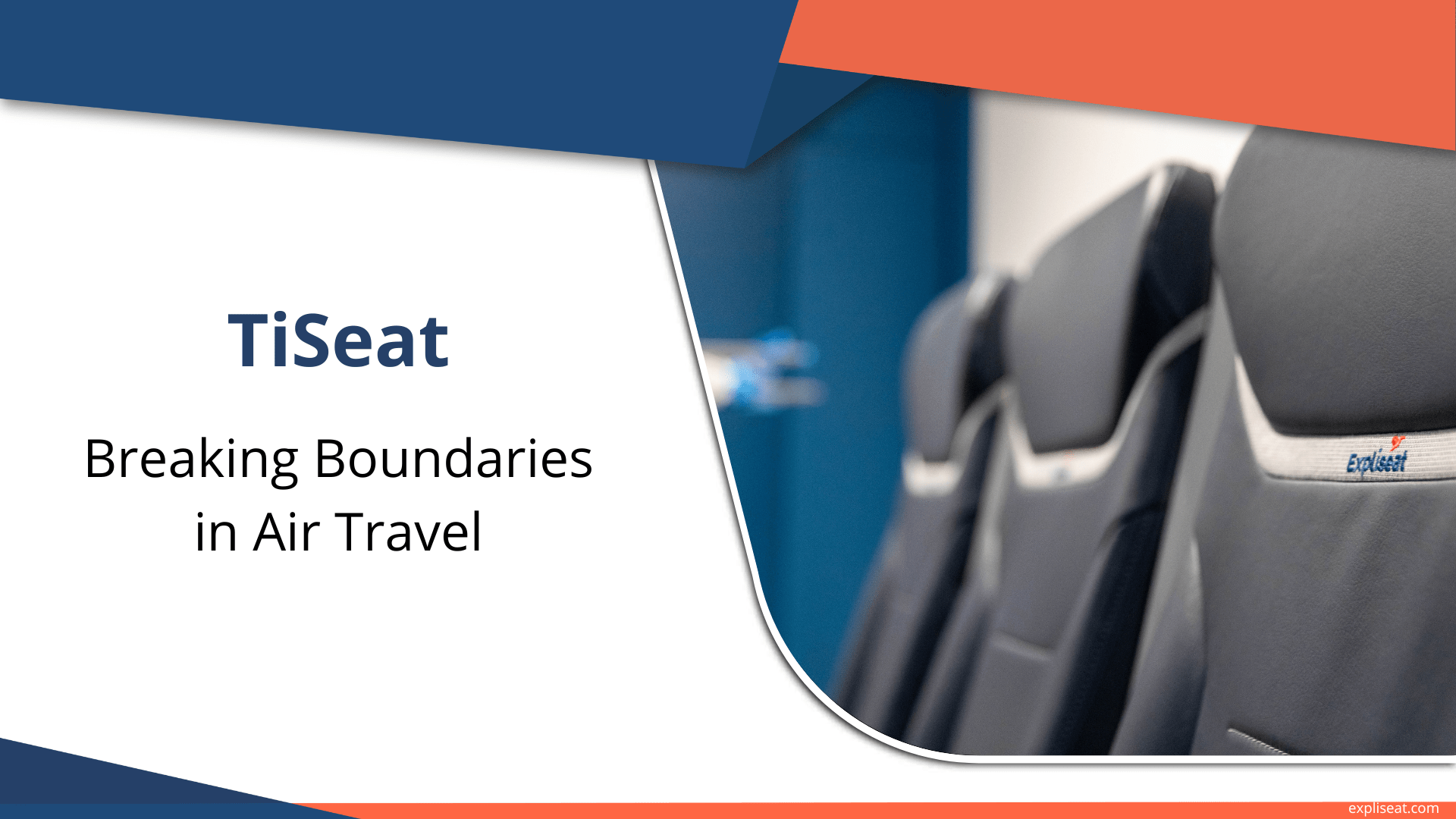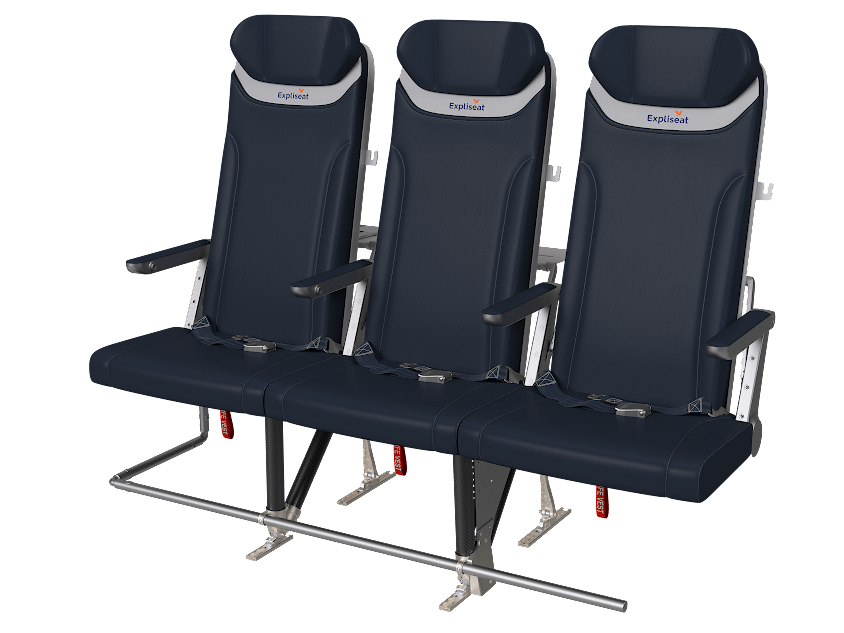
In the world of aviation, every ounce matters. At Expliseat, we break the mold with revolutionary seating technology that defies conventional norms. While the industry is used to choosing between lightweight design, robustness, and passenger comfort, our TiSeat introduces a paradigm shift by offering a perfect blend of lightweight construction, unmatched comfort, and robustness.
History teaches us that such shifts can only be achieved by breaking from the legacy of conventional materials and designs—much like Boeing did with the introduction of the first all-composite widebody (B787), Bombardier did with the first carbon fibre wing in the single-aisle segment (CSeries, now A220), or Learjet did with introducing the very first Winglet. Our exclusive use of titanium and carbon fibre makes our TiSeats a groundbreaking leap in design, redefining air travel. Join us as we unravel the myriad benefits of these cutting-edge seats, changing the way we fly.
1. Fuel Efficiency and Cost Savings
One of the primary advantages of lightweight aircraft seats is their contribution to fuel efficiency. Every pound saved on weight directly translates into reduced fuel consumption. Airlines and aircraft OEMs explore various opportunities to achieve this, including installing winglets on aircraft and optimizing flying paths. Our commitment to creating lightweight yet durable seats allows airlines to reduce operational costs, promoting more economically sustainable air travel. By retrofitting their current-generation single-aisle aircraft with our TiSeats, airlines can achieve up to a 6% reduction in fuel burn—equivalent to the benefits brought by winglets but at a fraction of the cost.
2. Environmental Sustainability
With the global push towards sustainability and the aviation industry’s commitment to achieving net-zero carbon emissions by 2050, airlines face escalating pressure to adopt eco-friendly practices. Our revolutionary lightweight aircraft seats play a pivotal role in advancing this environmental agenda. With a remarkable 30% reduction in weight, these seats not only contribute significantly to fuel efficiency but also translate into a commendable 6% decrease in CO2 emissions per passenger. By opting for our TiSeats, airlines can tangibly showcase their commitment to environmental responsibility, actively contributing to the industry’s mission to reduce the overall environmental impact of air travel. This eco-conscious choice not only aligns with the growing demand for greener aviation solutions but positions airlines as leaders in the pursuit of a more sustainable and eco-friendly future for air travel.
3. Increased Passenger Capacity
The lightweight design of Expliseat’s aircraft seats allows airlines to optimize cabin space and increase passenger capacity. Take Jazeera, for instance – by choosing our seats; they save an impressive 1.2 tons per aircraft. This significant weight reduction has been strategically repurposed, allocating 200kg for USB equipment, accommodating an additional 600kg in passengers, and realizing 400kg in fuel savings. This innovative approach not only enhances profitability but also addresses the growing demand for affordable air travel by maximizing available seating.
4. Enhanced Comfort and Ergonomics
While the focus is on weight reduction, the TiSeat does not compromise on passenger comfort. Our seats are designed with meticulous attention to ergonomics, ensuring that passengers experience a comfortable and enjoyable journey. The innovative materials we are using not only contribute to their lightweight design but also provide 50% more comfort than traditional seats. The TiSeat’s unique blend of titanium and carbon fiber offers superior support and cushioning, promoting a pleasantly luxurious flying experience for travelers. Marco Prud’Homme, President of OWG, attests to this exceptional comfort, stating, “It’s not every day that you meet a team that provides something new to the industry, and Expliseat came up with a model that was quite different. They made the cabin more roomy, made it possible for people to enjoy the flying experience.”
5. Maintenance Efficiency
In addition to fuel efficiency and environmental benefits, lightweight aircraft seats contribute to improved maintenance efficiency, boasting metrics like 10x lower Direct Maintenance Costs (DMC). With reduced wear and tear, airlines can extend the lifespan of their aircraft interiors, resulting in fewer replacements and repairs. This not only saves costs but also minimizes aircraft downtime, enhancing operational efficiency. Our commitment to sustainability is further emphasized by the fact that the TiSeat uses very few plastic components. This conscious design choice not only contributes to their robustness but also aligns seamlessly with the broader sustainability aspect. The TiSeat’s durability and minimal environmental impact make it a standout choice for airlines aiming to balance operational efficiency with a commitment to a greener future.
Lightweight aircraft seats are not just a technological innovation; they represent a paradigm shift in the aviation industry towards sustainability, efficiency, and passenger-centric design. As airlines continue to seek ways to optimize their operations and meet the evolving needs of travellers, lightweight seats emerge as a critical solution.

